Key Takeaways
- User-Centric Marketing: Embrace transparency and user consent to navigate CCPA’s impact on marketing. Prioritize strategies that respect user choices, fostering trust and building a competitive edge.
- SEO Beyond Keywords: The era of CCPA demands SEO strategies aligned with data protection. Secure connections, transparent policies, and user experience now play pivotal roles in ranking success.
- Strategic Resilience: CCPA compliance isn’t just a checklist; it’s an ongoing commitment. Businesses must continually adapt, innovate, and stay informed, turning regulatory challenges into strategic advantages.
In the ever-shifting landscape of digital governance, the California Consumer Privacy Act (CCPA) stands as a monumental piece of legislation, reshaping the contours of how businesses engage with consumer data.
Enacted in 2018 and effective since January 1, 2020, the CCPA isn’t just a California-centric affair; it’s a paradigm shift that reverberates across industries, impacting marketing and SEO strategies globally.
Let’s embark on an insightful journey into the heart of the CCPA, unraveling its nuances and understanding how it’s redefining the rules of the data privacy game.
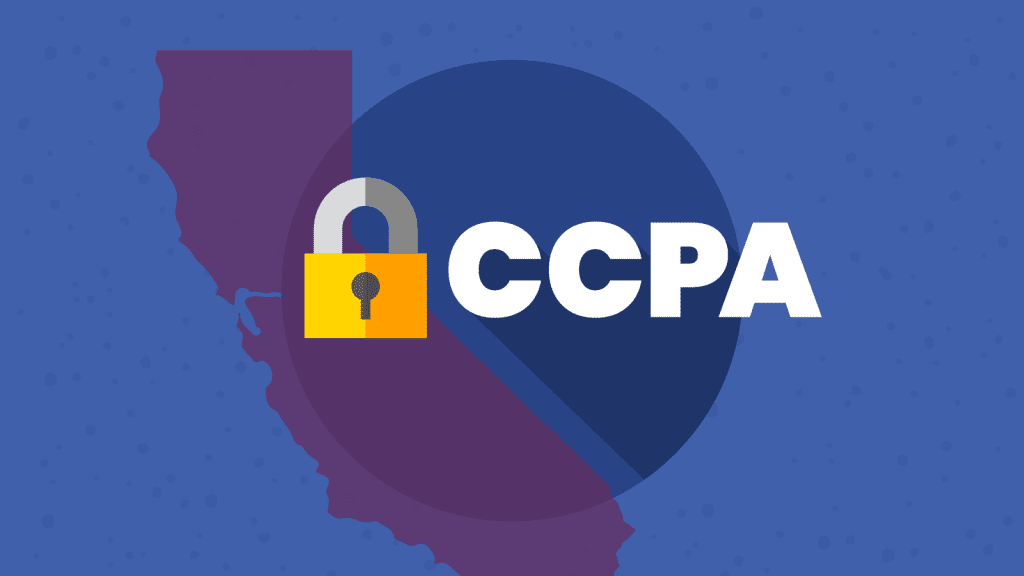
Deciphering the CCPA Tapestry: Understanding the Legislation’s Genesis and Scope
To navigate the transformative landscape sculpted by the CCPA, one must delve into its origins and comprehend the depth of its scope.
Born out of a growing chorus of concerns surrounding online privacy, the CCPA empowers consumers by granting them unprecedented control over their personal information.
But this legislation isn’t confined to the sun-soaked shores of California; it casts its influence far and wide.
As we unravel the intricacies of the CCPA, we’ll explore not just the letter of the law, but its far-reaching implications for businesses operating in the digital realm.
The Intersection of CCPA, Marketing, and SEO: A Harmonious Evolution or Dissonance?
As businesses adapt to the new reality forged by the CCPA, the symbiotic relationship between marketing, SEO, and consumer data takes center stage.
Ethical marketing practices, data collection transparency, and the right to opt out become pivotal considerations for marketers navigating this terrain.
Simultaneously, the rules of the SEO game are undergoing a transformation, with consumer trust emerging as a critical ranking factor.
In this section, we’ll explore how the CCPA is reshaping the strategies of marketers and SEO professionals, ushering in an era where compliance is the linchpin of success.
Compliance Unveiled: Navigating the CCPA Landscape for Marketing and SEO Success
The road to compliance is complex, but it’s one that businesses cannot afford to sidestep.
From conducting meticulous data inventories to updating privacy policies, adhering to the CCPA is not just a legal necessity; it’s a strategic imperative.
In this segment, we’ll unravel the steps businesses must take to build a robust compliance blueprint, ensuring they not only meet the regulatory standards but also fortify their reputation as responsible custodians of consumer data.
Embracing CCPA Knowledge as a Strategic Imperative
As we conclude this comprehensive exploration of the CCPA’s impact on marketing and SEO, one thing becomes abundantly clear: knowledge is power.
Armed with a deep understanding of the CCPA, businesses can not only navigate the complexities of data privacy but also turn compliance into a strategic advantage.
In this final section, we’ll recap the key insights, emphasize the urgency of embracing CCPA knowledge, and issue a compelling call to action for businesses to not just comply but thrive in an era where consumer empowerment and data privacy reign supreme.
But, before we venture further, we like to share who we are and what we do.
About AppLabx
From developing a solid marketing plan to creating compelling content, optimizing for search engines, leveraging social media, and utilizing paid advertising, AppLabx offers a comprehensive suite of digital marketing services designed to drive growth and profitability for your business.
AppLabx is well known for helping companies and startups use SEO to drive web traffic to their websites and web apps.
At AppLabx, we understand that no two businesses are alike. That’s why we take a personalized approach to every project, working closely with our clients to understand their unique needs and goals, and developing customized strategies to help them achieve success.
If you need a digital consultation, then send in an inquiry here.
What is CCPA, and What It Means for Marketing and SEO
1. Understanding CCPA
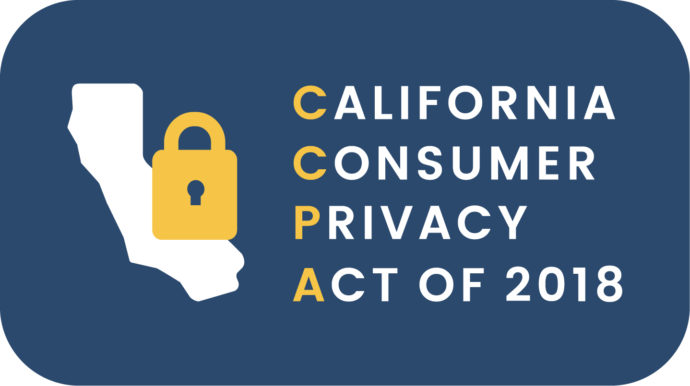
Origins and Evolution of the CCPA
Background and Motivation: The CCPA emerged in response to the growing concerns around the unfettered collection and commercialization of personal data.
Originating in California, the tech hub of the world, the law aimed to give consumers more control over their personal information.
Evolution from Concept to Law: Initially conceived as a ballot initiative, the CCPA rapidly evolved into law through a legislative compromise.
This progression underscores the pressing need for robust data privacy measures, resonating not only within California but echoing across industries globally.
Defining the CCPA: Scope and Applicability
Geographical Jurisdiction: While the CCPA’s primary jurisdiction is California, its impact extends far beyond state borders.
Any business, irrespective of location, handling the personal information of California residents and meeting specific criteria falls under the CCPA’s ambit.
Business Criteria: Entities subject to the CCPA must meet specific criteria, including an annual gross revenue exceeding $25 million, handling personal information for 50,000 or more consumers, households, or devices, or deriving 50 per cent or more annual revenue from selling consumers’ personal information.
Key Principles and Consumer Rights Under CCPA
Data Access Rights: CCPA grants consumers the right to request information about the personal data collected, disclosed, and sold by businesses. Businesses must furnish a comprehensive report within 45 calendar days upon receiving a valid request.
Right to Deletion: Consumers have the right to request the deletion of their personal information, providing them with the ability to “opt out” and control the dissemination of their data.
Opt-Out and Non-Discrimination: CCPA ensures consumers can opt out of the sale of their personal information without facing discriminatory treatment from businesses.
Businesses must prominently display a “Do Not Sell My Personal Information” link on their websites, providing an accessible means for consumers to exercise their opt-out rights.
Applicability to Businesses: CCPA Compliance Criteria
Data Inventory and Mapping: Businesses must conduct a thorough inventory and mapping of the personal information they collect, process, and disclose. This process is fundamental to ensuring compliance with consumer access and deletion requests.
Best Practice: Implementation of data mapping software can streamline the complex process of identifying and tracking the flow of personal information.
Privacy Policies and Disclosures: CCPA compliance necessitates clear and concise privacy policies, detailing the categories of personal information collected, purposes of use, and mechanisms for consumers to exercise their rights.
Challenges and Considerations for Businesses
Operational Challenges: Implementing CCPA compliance measures can pose operational challenges for businesses, particularly those with complex data ecosystems. Ensuring that data is accurately classified and mapped is crucial but can be resource-intensive.
A survey found that 51% said data subject request fulfilment is the most difficult part of CCPA compliance.
Legal Implications of Non-Compliance: The stakes for non-compliance are substantial, with potential fines and legal repercussions. The California Attorney General’s office actively enforces CCPA compliance, and businesses failing to adhere may face penalties.
2. Impact on Marketing

Data Collection and Consent in the Age of Transparency
Changing Dynamics of Consumer Consent: The CCPA introduces a paradigm shift in how businesses collect and utilize consumer data. With a heightened emphasis on transparency and user control, obtaining explicit consent becomes paramount.
Marketers must now navigate a landscape where consumers have the right to know what personal information is being collected and for what purposes.
According to a survey by the Pew Research Center, 79% of adults assert they are very or somewhat concerned about how companies are using the data they collect about them. This underscores the urgency for businesses to prioritize transparent data collection practices.
Opt-Out Options and Implications: Under CCPA, consumers have the right to opt out of the sale of their personal information. This poses a challenge for marketers relying on targeted advertising strategies.
Crafting user-friendly opt-out mechanisms becomes not just a compliance requirement but a strategic imperative.
Industry Trend: Businesses like Apple, in response to the evolving data privacy landscape, have incorporated explicit opt-out features in their applications, setting a precedent for user-centric data control.
Targeted Advertising in the Post-CCPA Era
Impact on Personalized Marketing: CCPA’s restrictions on data use impact the effectiveness of personalized marketing strategies. Marketers accustomed to leveraging granular user data for hyper-targeting must recalibrate their approaches.
The focus shifts to delivering relevant content without relying extensively on individual user profiles.
Example: Facebook, in response to evolving privacy norms, has implemented changes, limiting advertisers’ access to certain user data and emphasizing more on aggregated and anonymized insights.

Strategies for Compliant Targeted Advertising: Navigating the CCPA landscape requires marketers to adopt innovative strategies for targeted advertising.
Contextual targeting, where ads are aligned with the content being viewed rather than user profiles, emerges as a compliant alternative. Emphasizing first-party data, obtained with user consent, becomes crucial for tailored marketing efforts.
Best Practice: Airbnb’s approach involves crafting personalized marketing messages based on user preferences gathered through direct interactions and explicitly provided information, ensuring compliance with data privacy regulations.
Nurturing Consumer Trust Through CCPA-Compliant Practices
Importance of Transparent Data Practices: CCPA necessitates a cultural shift in how businesses approach consumer data.
Marketing strategies must prioritize transparent communication about data practices, reassuring consumers about the responsible handling of their information.
Trust becomes a currency, and businesses that actively communicate their commitment to privacy stand to gain consumer loyalty.
Ensuring Website Compliance with CCPA: Beyond targeted advertising, the impact of CCPA extends to website operations.
Marketers must ensure that their websites align with CCPA requirements, including the provision of clear privacy policies, conspicuous opt-out mechanisms, and user-friendly interfaces for data access requests.
Example: Microsoft, in adapting to CCPA requirements, redesigned its privacy dashboard, providing users with a centralized hub to manage their privacy settings, demonstrating a commitment to transparency.
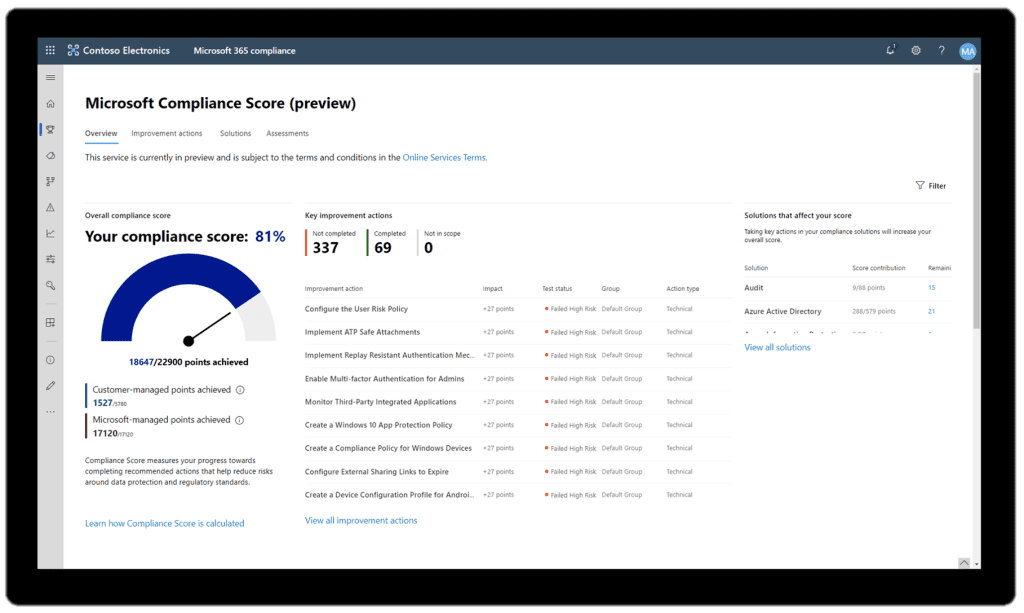
3. Impact on SEO

User Privacy and its Role in Search Engine Optimization
Algorithmic Shifts Towards User Privacy: The advent of CCPA has brought about a significant impact on how search engines prioritize user privacy.
Google, the dominant search engine, has been at the forefront of such changes.
The search giant has adjusted its algorithms to favour websites that prioritize user privacy and comply with data protection regulations.
SEO Implications: For SEO practitioners, this shift requires a recalibration of strategies.
User privacy is now a crucial ranking factor, and websites that respect user data, provide transparent privacy policies, and adhere to regulatory requirements are likely to see a positive impact on their search rankings.
Website Compliance and SEO Performance
The Importance of CCPA Compliance: CCPA compliance is not only a legal necessity but also a factor that can influence SEO performance. Search engines like Google give preference to websites that adhere to data protection regulations.
Ensuring CCPA compliance, including the provision of clear privacy policies and mechanisms for users to exercise their data rights, can positively impact a website’s search visibility.
SEO Benefits of Transparency: Transparent data practices contribute to a positive user experience, and search engines reward websites that prioritize transparency.
This involves clearly communicating data collection practices, providing opt-out options, and securing user trust by demonstrating a commitment to privacy.
Example: The website DuckDuckGo, which emphasizes user privacy in its search engine, has seen significant growth in user adoption, showcasing the demand for privacy-focused platforms.

Technical SEO Considerations in Light of CCPA
Data Mapping and Structured Data: CCPA compliance involves a meticulous data mapping process to understand how user data is collected and processed.
From an SEO perspective, this process also presents an opportunity to enhance structured data implementation. Properly structured data not only aids compliance but also contributes to improved search engine understanding of website content.
Best Practice: Implementing schema markup that highlights privacy information and compliance details can positively impact search engine visibility.
Page Load Speed and User Experience: User experience, a critical factor in SEO, is intertwined with CCPA compliance.
Websites that prioritize fast loading times and smooth user interactions tend to rank higher in search results.
Ensuring that compliance mechanisms, such as opt-out processes, do not compromise website performance is crucial.
Google’s PageSpeed Insights tool considers page load speed as a factor in determining website performance, with faster-loading pages receiving higher scores.
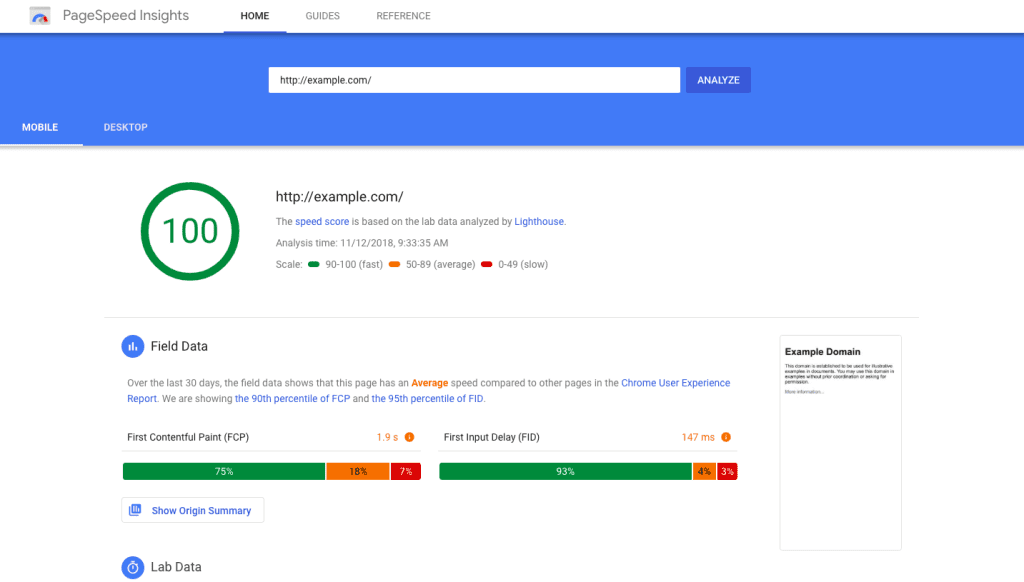
Local SEO Considerations Under CCPA
Geographical Specifics of CCPA: While the CCPA is a California-specific regulation, its impact extends beyond state borders.
For businesses operating in California or targeting Californian users, local SEO strategies must align with CCPA requirements. Local businesses need to communicate their commitment to privacy, which can positively influence local search rankings.
Review Management and Privacy Compliance: For businesses collecting user reviews, managing and displaying them in compliance with CCPA is crucial.
Implementing review management strategies that respect user privacy and comply with data protection regulations contributes not only to legal adherence but also to positive local SEO outcomes.
Example: Yelp, a platform hosting user reviews, has implemented features allowing users to exercise their privacy rights in compliance with CCPA.
4. Compliance Strategies

Understanding CCPA Requirements
Clarity on Scope and Applicability: A crucial first step in compliance with the California Consumer Privacy Act (CCPA) is understanding its scope and applicability.
This involves assessing whether your business falls within the criteria outlined by the CCPA, such as annual revenue thresholds and the nature of data processing.
Data Inventory and Mapping: Conducting a comprehensive data inventory and mapping exercise is imperative.
Identifying the types of personal information collected, the purposes for which it’s processed, and the entities with whom it’s shared lays the foundation for compliance measures
Implementing Transparent Data Practices
Crafting Clear Privacy Policies: Transparent communication about data practices is a cornerstone of CCPA compliance.
Businesses need to craft clear and accessible privacy policies that outline the categories of personal information collected, the purposes of processing, and the rights granted to consumers.
Best Practice: The website of online retailer Shopify provides a clear and concise privacy policy that aligns with CCPA requirements.
Opt-Out Mechanisms and User Rights: CCPA grants consumers the right to opt out of the sale of their personal information.
Implementing user-friendly opt-out mechanisms on websites and ensuring users can easily exercise their rights, such as data access and deletion requests, is essential.
Example: Microsoft’s online privacy dashboard allows users to exercise their CCPA rights, providing a user-centric approach to compliance.
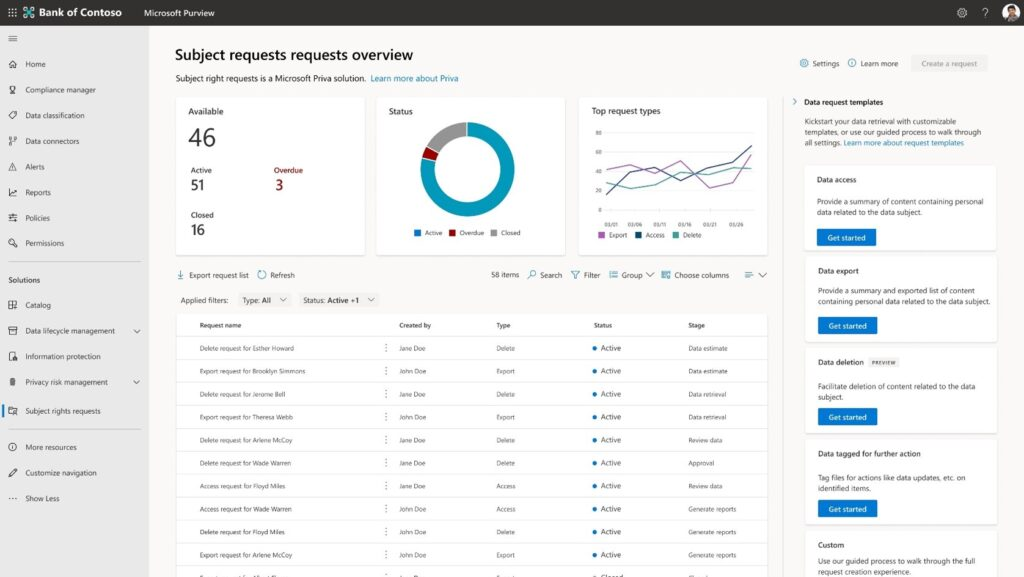
Technical Adjustments for CCPA Compliance
Secure Website Connections (HTTPS): Ensuring a secure website connection is not just a best practice but aligns with CCPA requirements. Websites that process personal information must use HTTPS to encrypt data in transit, contributing to overall data security.
Cookies and Consent Management: CCPA places importance on user consent for the collection of personal information, including cookies. Implementing robust consent management systems, especially for cookies, ensures compliance with data protection regulations.
Example: The website of the Financial Times incorporates a cookie consent banner that provides users with clear options, demonstrating a commitment to user choice.
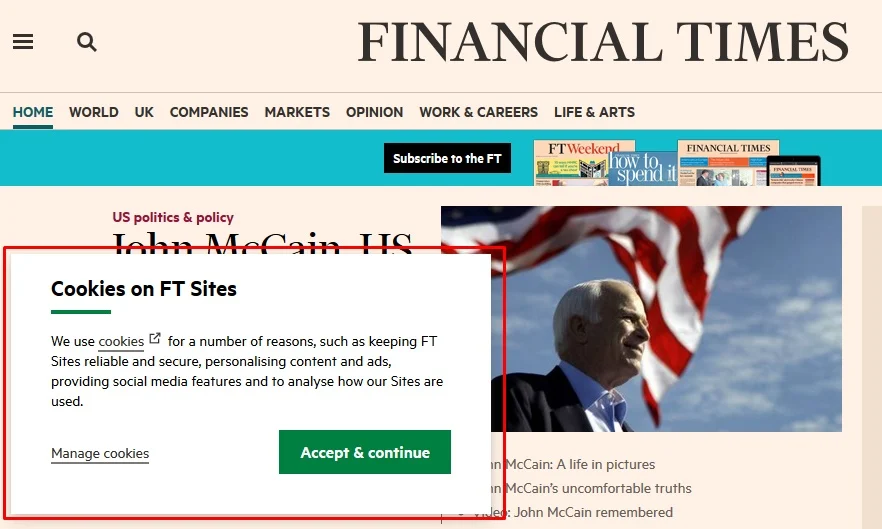
Employee Training and Internal Protocols
Educating Staff on CCPA Compliance: Internal stakeholders play a pivotal role in ensuring CCPA compliance.
Conducting training sessions for employees to understand the intricacies of the CCPA, emphasizing the importance of data protection, and establishing protocols for handling consumer requests contribute to a compliant organizational culture.
Incident Response Protocols: Establishing robust incident response protocols is crucial. In the event of a data breach or non-compliance issue, having a clear and swift response plan helps mitigate risks and ensures that the business can fulfil its obligations under the CCPA.
Best Practice: The International Association of Privacy Professionals (IAPP) provides guidelines for creating incident response plans that align with data protection regulations.
Continuous Monitoring and Adaptation
Regular Audits and Assessments: CCPA compliance is not a one-time task; it requires continuous monitoring and adaptation.
Regular audits of data processing activities, assessments of third-party relationships, and updates to privacy policies are essential for maintaining compliance in a dynamic regulatory landscape.
Example: The privacy team at Google conducts regular privacy assessments, as outlined in their transparency report, showcasing an ongoing commitment to compliance.
Staying Informed About Regulatory Updates: Given the evolving nature of data protection regulations, staying informed about updates and amendments to the CCPA and related laws is crucial.
Businesses need to adapt their compliance strategies to align with any changes in regulatory requirements.
Conclusion
In the dynamic realm of digital marketing and search engine optimization (SEO), the California Consumer Privacy Act (CCPA) emerges as a transformative force, reshaping the landscape and demanding a strategic recalibration.
As we traverse the multifaceted implications of CCPA on marketing and SEO, it becomes evident that understanding and adapting to this regulatory framework is not merely compliance; it’s a strategic imperative for businesses aiming for sustained success in the digital era.
CCPA as a Catalyst for Change in Marketing Strategies
The seismic shift initiated by CCPA in data privacy practices places transparency and user consent at the forefront of marketing strategies.
With consumers wielding newfound control over their personal information, businesses must navigate a landscape where targeted advertising meets user opt-outs, and personalized marketing aligns with a commitment to privacy.
SEO Evolution in the Age of Data Privacy
The symbiotic relationship between SEO and CCPA unfolds as search engines recalibrate algorithms to prioritize user privacy.
The SEO playbook now extends beyond traditional keyword optimization, encompassing the strategic alignment of websites with data protection regulations.
Secure connections, transparent privacy policies, and a commitment to user experience become not just SEO best practices but essential elements of digital resilience.
Operationalizing Compliance Strategies
CCPA compliance is not a one-size-fits-all endeavour; it’s a dynamic process requiring meticulous planning and adaptation.
From transparent data practices and user-centric marketing to technical adjustments and employee education, businesses must weave compliance into the fabric of their operations.
Strategic Advantage in Consumer Trust
Beyond regulatory adherence, embracing the principles of CCPA affords businesses a strategic advantage – the trust of consumers. In an era where data breaches and privacy concerns make daily headlines, consumer trust has become a currency of paramount value.
Businesses that communicate transparently, respect user choices and prioritize data protection position themselves as ethical guardians in the digital realm.
A Continuum of Adaptation and Innovation
As the digital landscape evolves, so will the regulatory framework. Staying ahead in the CCPA landscape requires businesses to not only comply with current requirements but also anticipate and adapt to future changes.
Continuous monitoring, regular audits, and staying informed about regulatory updates form the bedrock of a resilient and adaptive approach to data privacy.
If you are looking for a top-class digital marketer, then book a free consultation slot here.
If you find this article useful, why not share it with your friends and business partners, and also leave a nice comment below?
We, at the AppLabx Research Team, strive to bring the latest and most meaningful data, guides, and statistics to your doorstep.
To get access to top-quality guides, click over to the AppLabx Blog.
People also ask
What does CCPA mean in advertising?
In advertising, CCPA, or the California Consumer Privacy Act, signifies a paradigm shift. It grants consumers control over their data, impacting targeted advertising. Marketers must navigate user opt-outs, emphasizing transparent data practices to align with CCPA’s user-centric approach.
What is CCPA in Adsense?
In Adsense, CCPA refers to compliance with the California Consumer Privacy Act. It mandates transparency in data practices, requiring advertisers to respect user rights. AdSense publishers must align with CCPA guidelines, ensuring user privacy and fostering trust in digital advertising.
What does do not sell my personal information mean?
“Do not sell my personal information” is a privacy option allowing individuals to opt out of having their data sold to third parties. Under regulations like CCPA, businesses must respect this choice, providing users control over the use and monetization of their personal data.




































